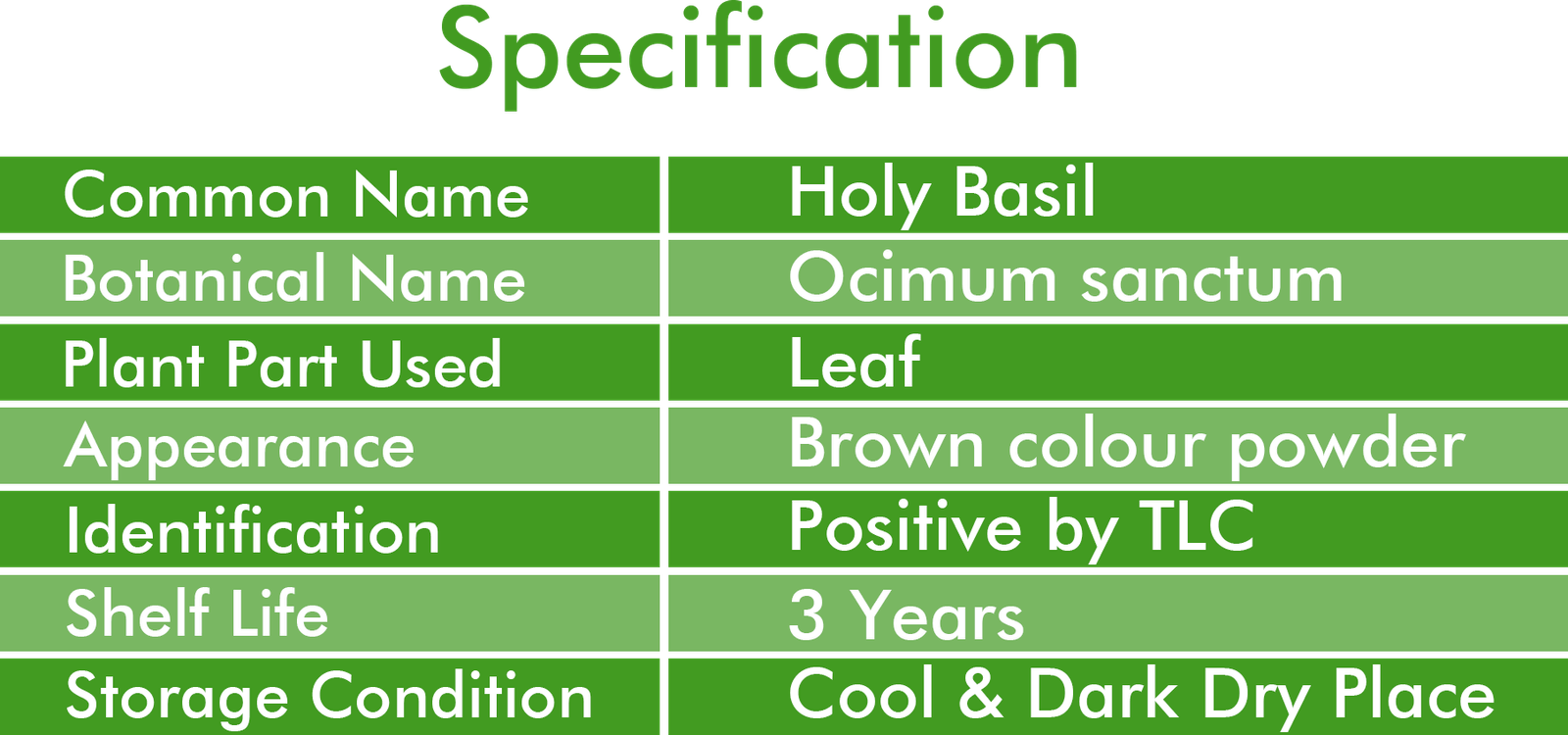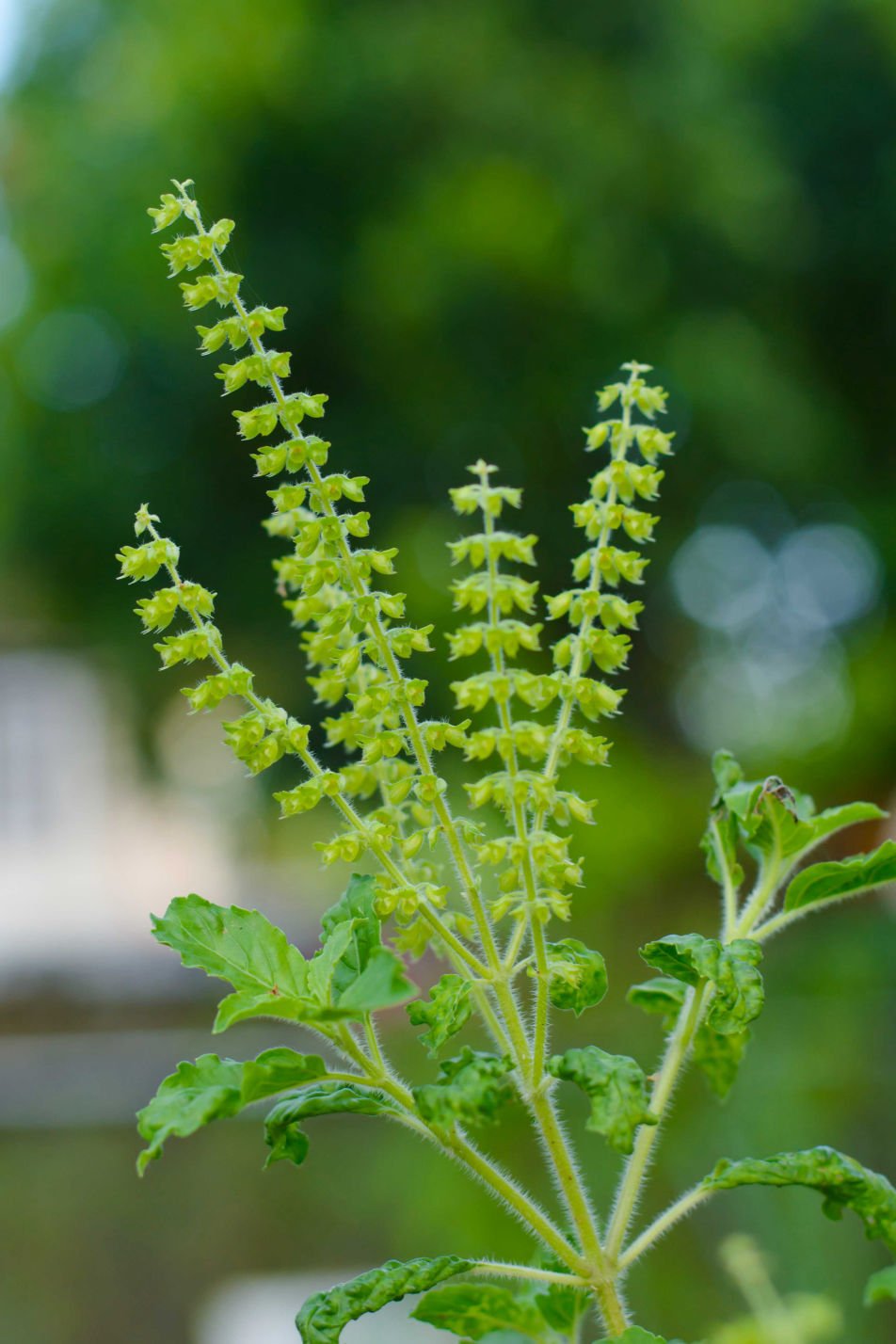
Ocimum sanctum L., known as ‘Tulsi’ in Hindi and ‘Holy Basil’ in English. Among the plants known for medicinal value, the plants of genus Ocimum belonging to family Labiatae are very important for their therapeutic potentials. Ocimum sanctum L. (Tulsi), Ocimum gratissium (Ram Tulsi), Ocimum canum (Dulal Tulsi), Ocimum basil-icum (Ban Tulsi), Ocimum kilimandscharicum, Ocimum ammericanum, Ocimum camphora and Ocimum micranthum are examples of known important species of genus Ocimum which grow in different parts of the world and are known to have medicinal properties.
Fresh leaves and stem of Ocimum sanctum extract yielded some phenolic compounds (antioxidants) such as cirsilineol, circimaritin, isothymusin, apigenin, oleanolic acid, ursolic acid, rosmarinic acid, eugenol, carvacrol, linalool, and β-caryophyllene (about 8%), and appreciable quantities of eugeno. The leaves of Ocimum sanctum contain 0.7% volatile oil comprising about 71% eugenol and 20% methyl eugenol. Tulsi essential oil consists mostly of eugenol (~70%) β-elemene (~11.0%), β-caryophyllene (~8%), and germacrene (~2%), with the balance being made up of various trace compounds, mostly terpenes.
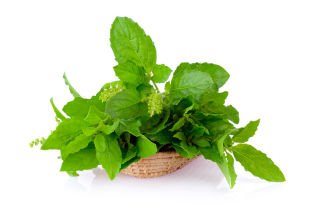
Ursolic acid: 2% - 2.5% by HPLC
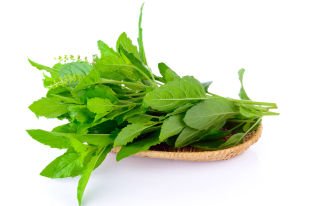
Total Tannins: 5% - 10% by Gravimetric
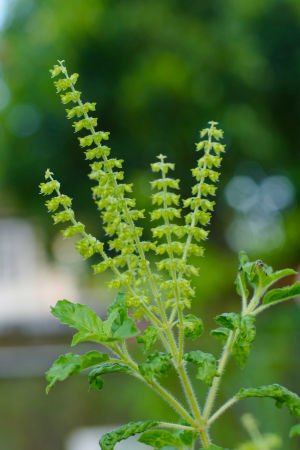
Tulsi “Queen of herbs” is described as sacred and medicinal plant in ancient literature. It is an important symbol of the Hindu religious tradition. The name Tulsi is derived from “Sanskrit”, which means “ matchless one”. Tulsi is also known as "the elixir of life" since it promotes longevity. Different parts of the plant are used in Ayurveda and Siddha systems of medicine for prevention and cure of many illnesses and everyday ailments like common cold, headache, cough, influenza, earache, fever, colic pain, sore throat, bron-chitis, asthma, hepatic diseases, malarial fever, as an antidote for snake bite and scorpion sting, flatulence, migraine head-aches, fatigue, skin diseases, wound, insomnia, arthritis, digestive disorders, night blindness and diarrhoea. The leaves are good for nerves and to sharpen memory. Chewing of tulsi leaves also cures ulcers and infections of mouth. A few leaves dropped in drinking water or food stuff can purify it and can kill germs in it. Holy Basil is so good for boosting up the immune system. It protects from nearly all sorts of infections from viruses, bacteria, fungi and protozoa. Recent studies show that it is also helpful in inhibiting the growth of HIV and carcinogenic cells.
